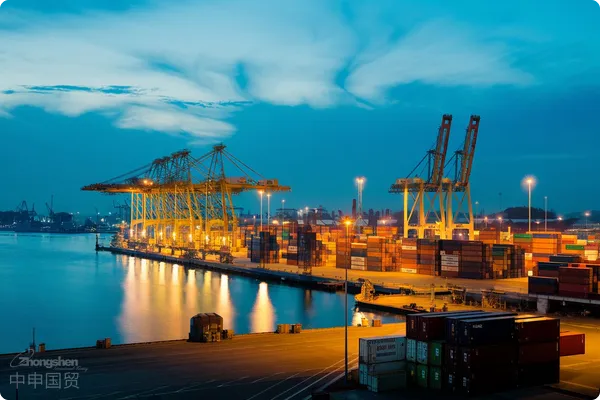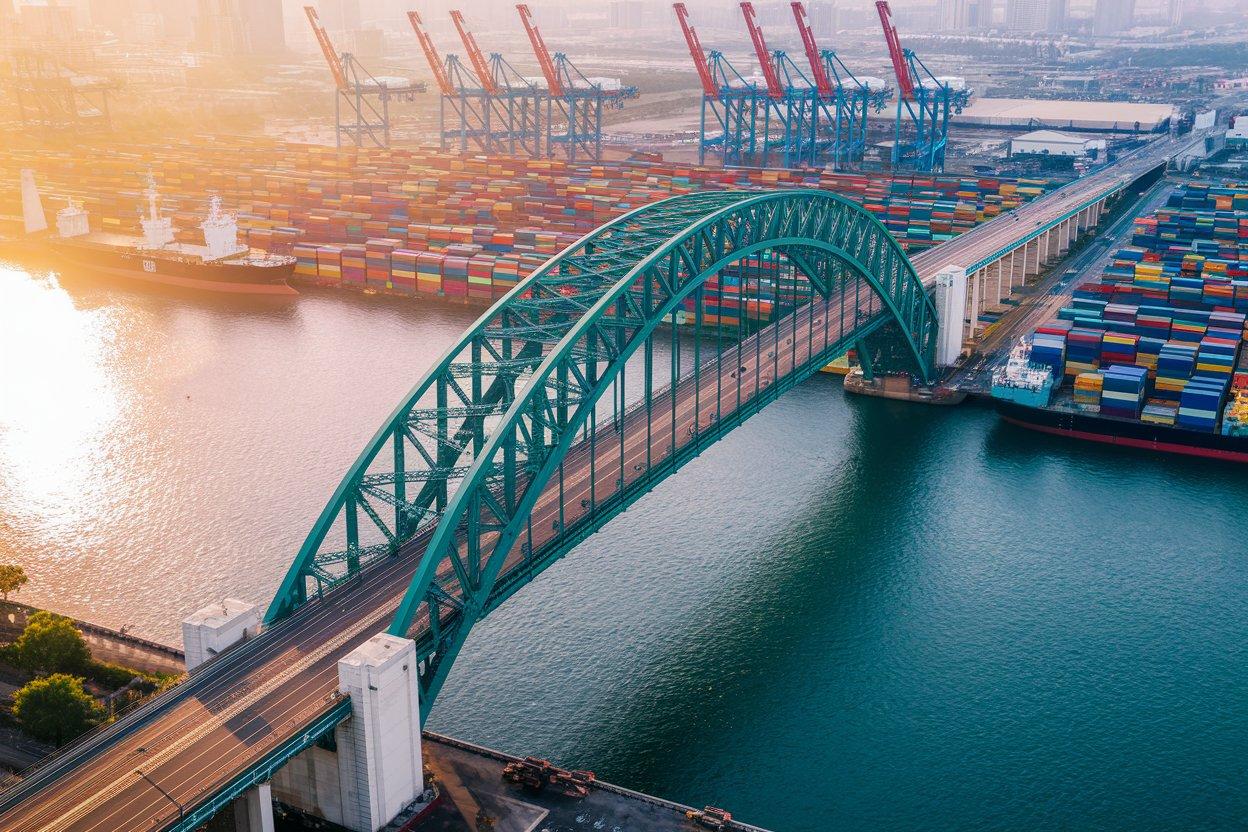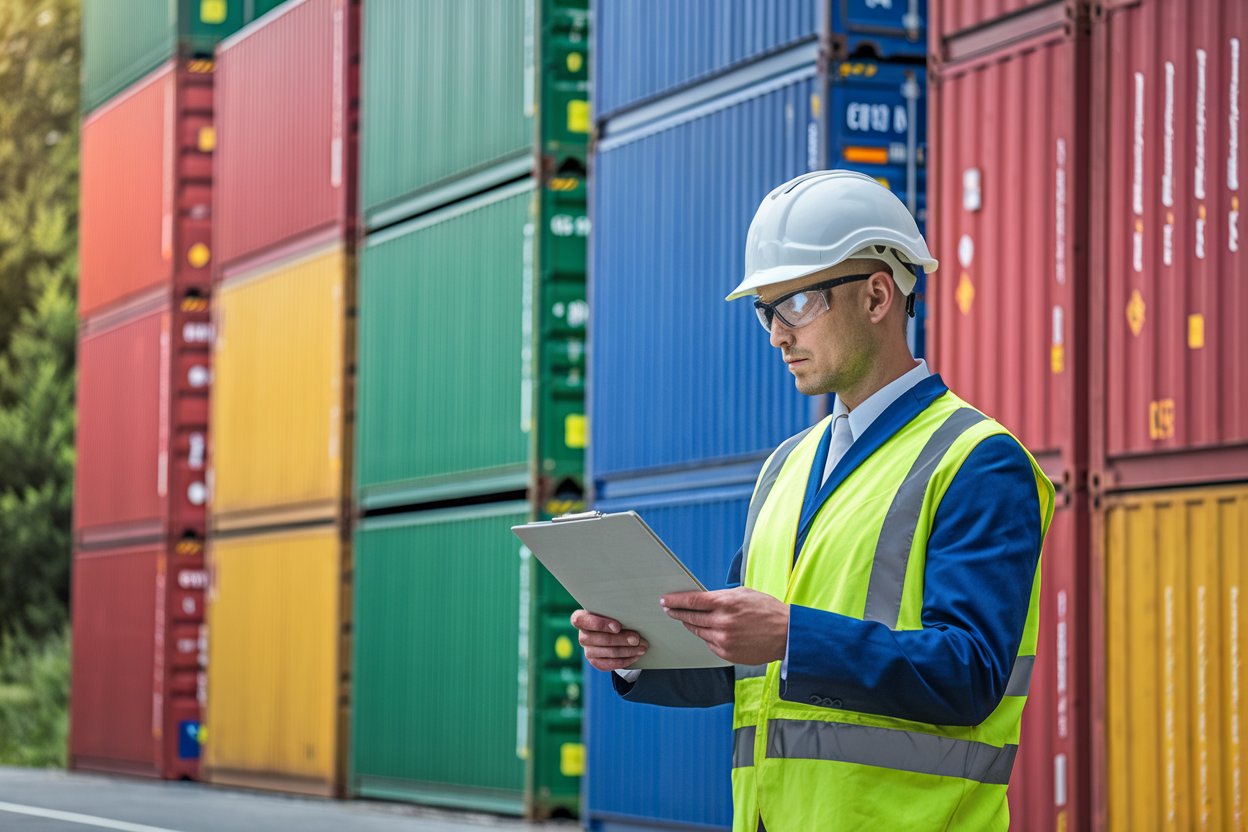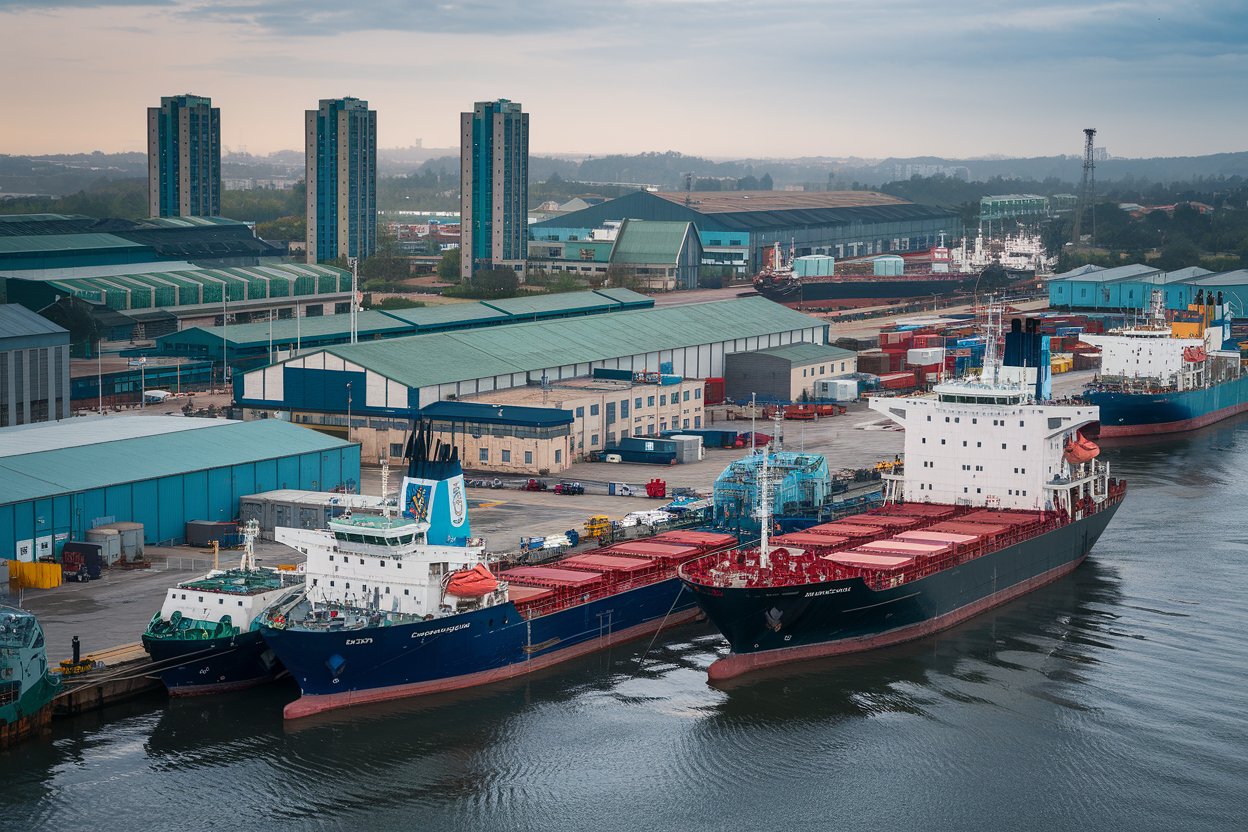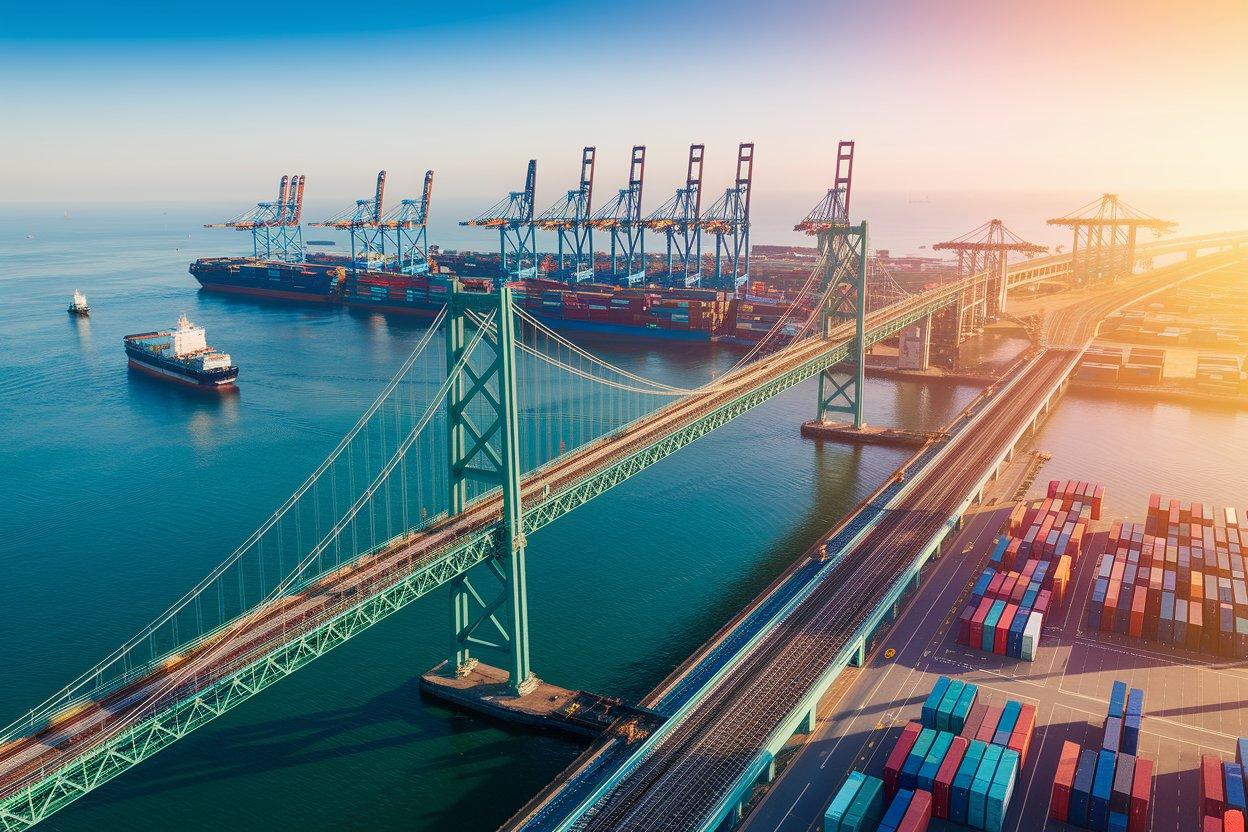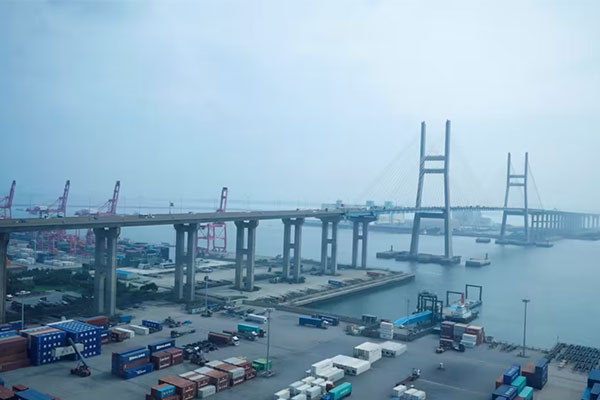What Exactly is Export Agency? 8 Core Questions Foreign Trade Beginners Must Know
日本不卡免费一区二区三区 |
亚洲黄色av电影手机在线观看 |
国产成人精品亚洲高清在线 |
精品国产网址免费在线观看
|
欧美一区二区日本国产激情 |
色哟哟一区二区三区中文字幕 |
欧美一区二区在线观看不卡 |
精品久久久久久亚洲一区二区三区 |
精品国产乱码久久久久久夜深 |
小泽玛丽视频在线观看 |
欧美日韩中文字幕每日更新 |
亚洲精品中国一区二区久久
|
中文字幕 日韩经典 人妻 |
青青久在线视频视频在线 |
亚洲情色av在线免费观看 |
一区二区三区中文字幕乱码 |
国产精品中文字幕免费观看 |
亚洲人成伊人成综合网76 |
顶级黄片av一区二区三区精品 |
五月婷婷网在线视频观看 |
日韩伦精品一区二区三区一级 |
国产精品一区在线观看网址 |
国产亚洲一区二区操老熟女av |
亚洲精品国产成人久久精品网 |
小泽玛利亚电影免费在线观看 |
国产电影一区二区三区在线观看 |
欧美精品秘密入口一区二区三区
|
日本一区二区三区不卡视频在线 |
美女18禁国产精品久久久久久 |
日韩亚洲欧美中文字幕在线观看 |
欧美一区二区三区激情免费 |
国产午夜免费电影在线观看 |
欧美一区两区三区在线观看 |
91一区二区三区久久国产乱 |
一区二区三区久久久久国产精品
|
久久精品一二欧美无婷婷 |
欧美激情欲高潮视频高清 |
久久精品国产亚洲av日韩 |
精品人妻少妇嫩草av码专区 |
不卡在线一一区二区三区91 |
五月天丁香色婷婷中文字幕 |
日本人妻与家公的伦理片 |
久久天堂一区二区三区av |
久久亚洲中文字幕精品熟女一区
|
不卡在线一一区二区三区91
|
亚洲精品国产剧情久久9191
|
国产一区二区在线播放黄色高清 |
欧美午夜精品一区二区三 |
亚洲综合精品一区二区三区 |
欧美国产精品久久久免费 |
国产精品69堂凸凹视频 |
国产黄色一级电影一区二区 |
久久精品国产亚洲欧美成人 |
国产a级精品一区二区免费看视频
国产激情av一区二区三区
|
高清精品一区二区三区伊人 |
国产精品美女久久福利网站 |
亚洲国产成人久久一区二区三区 |
亚洲av色图一区二区三区 |
久久99综合国产精品亚洲首页
|
亚洲国产欧美亚洲国产欧美 |
手机免费在线观看你懂得 |
亚洲第一欧美一区二区精品 |
91色老久久精品偷偷蜜臀九色 |
日韩国产精品综合高清av= |
日韩欧美一区二区精品在线看 |
欧美在线不卡视频每天更新 |
亚洲天堂一区二区三区在线观看
|
中美日韩在线一区黄色大片 |
午夜性色一区二区三区不卡视频 |
18禁黄网站禁片免费观 |
亚洲色图国产精品一区二区三区
|
日本高清不卡电影一区二区
|
av色先锋音影一区二区啪啪操 |
日韩激情视频免费在线观看 |
久久精品亚洲国产av麻豆长发
|
色噜噜色狠狠狠狠狠综合色一 |
国产美女直播在线一区二 |
色综合天天综合网国产人
|
亚洲精品中文字幕乱码二区 |
国产三级黄色的在线观看 |
午夜天堂av天堂久久久 |
红桃视频污在线观看视频在线观看 |
国产精品蜜臀av在线一区 |
国产午夜福利视频第三区 |
色婷婷一区二区三区四区成人 |
亚洲视频在线观看第一区 |
亚洲国产欧美亚洲国产欧美 |
超碰超碰超碰超碰超碰图片 |
青青草原在线视频观看精品 |
亚洲欧美国产精品中文字幕 |
国产成人91色精品免费网站
|
精品国产乱码久久久久久夜深 |
欧美日韩国产三级一区二区三区
|
亚洲男人的天堂av中文字幕 |
日本牲交大片在线一区二区 |
黄色三级av在线免费播放 |
精品国产高清三级在线观看 |
亚洲国产精品无石码久久 |
国产精品大屁股白浆一区二区
|
日韩av高清中文字幕在线观看 |
最新国产日韩欧美中文在线 |
日本不卡一区二区三区在线免费 |
亚洲区激情区图片小说区 |
国产精品清纯白嫩美女s |
亚洲欧美中文日韩另类特殊 |
92看看午夜福利合集免费观看 |
日韩a国产v亚洲欧美精品 |
亚洲精品涩涩在线观看 |
适合一家人看的国产电影
|
亚州女同性恋一区二区三区 |
亚洲国产色一区二区三区 |
日韩av在线亚洲一区二区三区 |
国产毛片精品国产一区二区三区 |
久久国产夜色精品鲁鲁99 |
欧美精品久久久久久一区二区三区 |
精品久久久久久亚洲一区二区三区
|
中文字幕乱码亚洲无线码二区 |
伊人久久大香线蕉综合bd高清 |
91精品国产综合久久香蕉观看 |
亚洲人成一区二区三区不卡 |
欧美一区二区三区免费观看视频 |
日韩人妻精品一区二区三区在线 |
亚洲天堂一区二区三区在线观看 |
亚洲综合国产一二三四五区 |
国产精品国产三级国产专区 |
在线看片日本免费一区二区 |
日韩精品欧美激情一区二区 |
欧美极品一区二区在线观看 |
国产一区二区三区色噜噜蝌蚪 |
日韩亚洲欧美中文字幕在线观看 |
粉嫩av一区二区三区在线播放 |
国产成人一区二区青青草原 |
婷婷99精品国产97久久综合 |
91久久国产精品久久91 |
国产日本欧美在线一区二区 |
性色av一区二区三区狠狠 |
国产电影一区二区三区在线观看 |
精品国产一区二区色老头 |
97久久伊人嫩草一区二区三区 |
国产精品羞羞答答色哟哟 |
国产精品一区二区白浆视频 |
亚洲中文精品久久久久久久38 |
国产亚洲欧美日韩看国产 |
视频一区二区不中文字幕 |
欧美一区二区精品久久久 |
久久久国产成人精品二区 |
91麻豆精品国产91久久久熟女 |
国产在线观看精品区一区 |
久久精品亚洲欧美日韩精品中文字幕 |
日韩熟女精品一区二区三区视频 |
青青视频在线观看一级二级 |
黄色三级av在线免费播放 |
欧美日韩精品一区二区在线观看 |
我吸着老师的白嫩大乳漫画 |
日本一区二区国产好的精华液 |
五月婷久久不能精品视频 |
成人黄页视频在线播放 |
免费欧美一区二区三区四区 |
国产亚洲av午夜在线路线 |
欧美日韩精品一区二区在线看 |
久久亚洲国产精品五月天 |
91一区二区三区久久国产乱 |
亚洲午夜一级艳片欧美精品 |
日本片一区二区在线视频 |
一本色道69色精品综合久久 |
日韩精品一区二区三区色 |
欧美人在线一区二区三区 |
国产精品羞羞答答色哟哟 |
最新国产免费成人色av |
国产黄片a三级久久久久久 |
黄色资源网日韩三级一区二区 |
日本不卡免费一区二区三区 |
欧美一区久久人妻中文字幕 |
精品国产亚洲一区二区麻豆 |
日韩欧美中文字幕一区二区三区 |
超碰超碰超碰超碰超碰图片 |
国产精品极品白嫩在线 |
99久久精品氩 99久久久 |
秋霞日韩欧美一区二区三区 |
精品欧美一区二区三区四区 |
欧美激情欲高潮视频高清 |
一区二区三区在线日本在线视频
|
国产精品嫩草影院在线污污污 |
国产亚洲精品久久久一区
|
久久久精品国产亚洲av网丝祙 |
国产亚洲综合一区二区在线观看 |
78色精品一区二区三区 |
欧美熟妇一区二区三区仙踪林
|
久久97久久99久久综合欧美 |
顶级尤物极品女神福利视频 |
日韩精品 中文字幕 有码系列 |
免费一区二区三区日韩欧美 |
欧美精品天堂一区二区不卡 |
一区二区三区有码在线播放 |
国产精品日韩精品中文字幕 |
精品国产一区二区免费久久 |
久久精品色妇熟妇丰满人妻 |
免费亚洲视频在线观看99 |
女同性恋精品一二三四区 |
国产在线精品二区一东京热 |
日韩乱码免费一区二区三区
|
亚洲男人的天堂av中文字幕 |
黄色片子中文字幕版免费 |
国产未成女一区二区三区 |
久久国产精品一区二区三区精品 |
爽国产成人精品午夜视频
|
国产亚洲精品久久久久久久久动漫 |
亚洲高清日韩精品一区二区三区网 |
欧美激情一区二区三区四区 |
欧美精品国产精品日韩系 |
欧美熟妇一区二区三区仙踪林 |
欧美日韩精品一区二区在线 |
黄色小说女久久久精品免费 |
国产主播一区二区三区在线观看 |
欧美久久久久久久一区二区三区 |
国产一区二区三区亚洲综合
|
亚洲一区二区在线观看的av |
美女性感黄网站视频久久久 |
亚洲欧美精品激情在线观看 |
亚洲男人的天堂av中文字幕 |
日韩精品成人av免费看 |
精品少妇极品久久久久久久
|
欧美熟妇一区二区三区仙踪林 |
欧美一级高清片国产特黄大片一 |
亚洲欧美日韩另类专区第八区 |
久久国产午夜精品理论片3 |
成人黄色小视频下载网站 |
97影院理论片在线观看 |
久久99精品久久久久久秒播
|
丁香六月婷婷激情综合 |
日本精品免费偷拍小视频网 |
国产流白浆一区二区三区免费视频
|
国产婷婷香蕉av一区二区三区 |
国产精品双马尾后入爆操 |
久热这里只有精品视频在线 |
亚洲人妻一区二区三区av |
国产熟女白浆精品视频2 |
国产寡妇精品久久久久久 |
黄黄黄污污污的免费网站 |
欧美日韩国产亚洲乱码字幕 |
亚洲欧美日韩综合第一第二区 |
国产无摭挡又爽又色又刺激 |
午夜亚洲精品久久久久久小说
|
欧美国产日韩二区一区在线 |
亚洲男人的天堂av中文字幕 |
一本大道综合伊人精品热热 |
亚洲一区二区三区自拍偷拍 |
久久久精品少妇一区二区三区 |
日韩精品在线观看一二三 |
99久久精品日本一区二区免费 |
亚洲综合色就色在线观看 |
欧美日韩免费电影一区二区 |
亚洲欧美日韩偷拍一区二区三区 |
在线观看特黄片一区二区二区 |
国产日韩欧美一区二区在线高清 |
欧美精品香蕉一区二区三区 |
日韩国产精品久久久久久亚洲 |
91丝袜精品久久久久久久人妻 |
国产一级二级三级在线观看视频 |
精品国产18久久久久二 |
国产亚洲欧美日韩看国产 |
黄色三级电影一区二区三区四区
|
综合国产精品久久久久久久
|
午夜亚洲精品久久久久久小说 |
国产精品色婷婷在线观看 |
精品国产一区二区免费久久 |
92精品欧美一区二区三区 |
国产性情片一区二区三区 |
亚洲一区二区三区毛带片 |
亚洲av另类激情一卡二卡不卡
|
亚洲一区二区三区四区五区六
|
国产精品宅福利无圣光视频 |
亚洲色图色眯眯在线播放 |
国产精品中文字幕在线观看
|
国产成人一区二区青青草原 |
亚洲午夜一级艳片欧美精品 |
中文字幕日韩欧美日韩在线 |
午夜午夜精品一区二区三区 |
国产一区二区自拍偷拍视频
|
欧美精品在线观看一区二区三区
|
深深婷婷久久爱做狠狠天天 |
黄页网站免费观看小视频 |
欧美黄色免费网站18禁久久
|
日本av电影一区二区在线观看 |
欧美日韩国产三级一区二区三区 |
成人精品精品视频在线播放 |
国产亚洲欧美传媒麻豆精品
|
78色精品一区二区三区 |
亚洲欧美中文日韩另类特殊 |
婷婷六月开心六月色六月 |
欧美韩一区二区三区电影免费看 |
精品久久久久久亚洲一区二区三区 |
亚洲午夜精品毛片成人播放 |
久久99久久久国产精品 |
欧美日韩一区二区啪啪啪 |
不卡国产精品爽黄69天堂 |
亚洲中文字幕丝袜熟女久久 |
日本黄色中文字幕不卡在线 |
国产亚洲成人av看黄在线观看 |
日韩欧美一区二区三区三 |
丝袜人妻电影一区二区三区 |
日韩人妻成人福利电影一区二区 |
欧美激情第一页在线播放 |
亚洲av中文有码免费观看 |
国产高颜值美女主播在线 |
清纯唯美亚洲色图在线视频 |
精品一区二区三区视频男人吃奶 |
日韩精品人妻中文字幕有码网址 |
亚洲欧美另类人妻第一页 |
美女性感黄网站视频久久久 |
综合国产精品久久久久久久
|
欧美一区二区三区四区五区 |
日韩特一级a毛大片欧美大片 |
亚洲欧美一区二区精品性色 |
美国毛片亚洲社区成人看 |
亚洲国产成人在人网站天堂 |
亚洲女同女同女同女同女同69 |
久久av一区二区三区影视 |
成人黄色在线免费观看网站 |
熟女av综合一区二区三区 |
一区二区三区三级18岁看的
|
国产在线视频欧美一区二区三区 |
日韩国产亚洲一区二区三区 |
黄色片子中文字幕版免费 |
91色综合久久夜色精品国产 |
国产露出精品一区二区三区91 |
国产欧美亚洲精品第一页 |
国产精品极品白嫩在线 |
日韩av一区二区三区网站 |
精品视频精品91美女视频
|
精品日韩av高清一区二区三区 |
国产精品白丝av嫩草影院 |
日韩免费av区二区电影 |
久久久一区二区三区999 |
亚洲欧美国产精品中文字幕 |
网友自拍偷拍视频一区二区
|
国产精品网红尤物福利在线 |
我吸着老师的白嫩大乳漫画 |
在线观看日韩中文字幕av |
美女成人亚洲黄色福利视频 |
av免费在线观看资源网站 |
亚洲国产一区二区在线网站网址 |
久久99久久久久久久久 |
精品人妻潮喷久久久又裸又黄 |
黑寡妇精品欧美一区二区毛 |
欧美电影日本电影国产电影
|
成人国产一区二区三区精品不卡 |
欧美成人免费va影院高清 |
蜜臀av一区二区三区蜜乳 |
国产一区二区叉叉动态图
|
97色婷婷成人综合在线观看
|
私人小影院网站午夜在线观看 |
欧美精品久久一区二区三区四区 |
黄色av网址在线免费观看 |
亚洲国产精品久久久av
|
护士精品一区二区三区99 |
国产精品大屁股白浆一区二区 |
欧美亚洲综合另类精品国产色拍图
|
91久久精品日日躁夜夜躁国产
|
国产精品久久观看美女毛茸茸 |
小说区图片区视频区亚洲 |
18禁真人污视免费网站 |
伊人天堂午夜精品福利网 |
国产精品亚洲精品日韩已满十八小
|
国产亚洲av另类一区二区三区 |
日韩和欧美的一区二区三区 |
一区二区三区日韩欧美国产 |
久久天堂一区二区三区av |
色噜噜日韩精品欧美一区 |
日韩电影免费看中文字幕 |
久久产精品一区二区三区日韩 |
国产欧美亚洲精品第一页 |
日韩欧美国产一区二区在线 |
国产欧美日韩精品久久久 |
中文字幕成人精品久久不卡 |
国产视频日韩视频欧美视频 |
亚洲国产精品一区二区免费电影 |
日韩精品人妻午夜一区二区三区 |
成人激情毛片免费在线看 |
欧美大片久久久久久久久 |
欧美视频黄页大全在线观看 |
秋霞日韩欧美一区二区三区 |
欧美色精品视频在线观看 |
精品国产一区二区三区久久久性 |
风流老熟女一区二区三区l |
一区二区三区久久久久国产精品 |
亚洲中文字幕一区二区三区四 |
久久精品国产亚洲av日韩 |
国产精品中文字幕免费观看 |
中文字幕精品乱码亚洲一区 |
久久久精品欧美一区二区免费
|
国产农村妇女一二三区 |
俺来也官网欧美久久精品 |
美美女高清毛片免费视频 |
人妻少妇精品一区二区三区视频 |
午夜视频久久播五月婷婷 |
亚洲精品久久久久久宅男 |
日本中文字幕视频在线观看 |
欧美精品高清在线一区二区三区 |
粉嫩欧美一区二区三区高清影视 |
国产精品久久久久大屁股精品性色 |
欧美欧美欧美欧美在线观看
|
欧美日韩中文字幕午夜在线 |
久久精品一区二区三区资源网
|
国内自拍偷拍网站一区二区 |
免费亚洲色图久久综合网 |
亚洲av另类激情一卡二卡不卡 |
日本高清不卡中文字幕免费
|
小泽玛丽视频在线观看 |
欧美日韩视频在线一区二区三区 |
欧美二区三区久久久精品 |
97性潮久久久久久久久播 |
国产黄片a三级久久久久久 |
高清不卡一卡二卡区在线 |
欧美三级韩国三级日本三斤 |
精品人妻少妇嫩草av码专区 |
91精品国产亚洲爽啪在线影院
|
成人av一区二区三区免费在线 |
久久一区二区三区欧美亚洲 |
国产一区二区三区日韩精品 |
国产欧美精品区一区二区三
|
在线小视频一区二区三区 |
国产一区二区精品久久呦 |
亚洲中文字幕日韩一区二区 |
精品国产99久久久成人 |
国产精品初高害羞小美女 |
亚洲第一区欧美日韩在线 |
亚洲福利欧美日韩午夜一区 |
亚洲午夜福利国产门事件 |
国产精品久久久久久吹潮 |
国产日本欧美在线一区二区 |
在线精品国产亚洲av日韩 |
五月婷久久不能精品视频 |
老司机精品成人免费视频 |
国产拍欧美日韩视频一区 |
最近中文字幕mv免费高清 |
国产性情片一区二区三区 |
亚洲欧美日韩加勒比在线 |
91偷国自产一区二区三区蜜臀 |
五月婷久久不能精品视频 |
久久国产午夜精品理论片3 |
毛片毛片视频毛片视频的毛片 |
国产精品久久一区二区三区青青 |
国产自拍三级视频在线观看 |
久热热久这里只有精品国产 |
日韩国产亚洲一区二区三区 |
91在线精品免费一区欧美直播 |
亚洲精品在线中文字幕第一页 |
一区二区三区亚洲欧美日韩人色 |
亚洲欧美一区精品中文字幕 |
国产欧美日韩精品一区二区在线 |
国产精品久久久久久成人 |
一区二区三区高清视频精品 |
欧美精品区一区二区三区 |
激情综合网五月六月丁香国产 |
久久国产精品一区二区三区精品 |
精品国产女同一区二区三区 |
99久久精品氩 99久久久 |
午夜精品久久久久久久第一页 |
粉嫩一区二区三区精品视频 |
日韩精品亚洲一区二区三区四区 |
免费一区二区三区日韩欧美
|
亚洲产国偷v产偷v自拍一区 |
国产在线精品一区在线观看麻豆 |
大胸熟女少妇一区二区三区 |
国产一区二区三区色噜噜91 |
日本亚洲一区二区色噜噜 |
国产精品亚洲综合久久婷婷 |
午夜视频在线观看视频在线观看视频 |
日韩精品一区二区三区四区不卡 |
亚洲av日韩高清在线观看
|
色哟哟一区二区三区中文字幕 |
久久精品人妻一区二区三区一 |
一区二区三区四区中文字幕欧美 |
久久艹精彩视频免费观看 |
午夜精品久久久久9999高清 |
91久久精品国产91久久性色 |
网友自拍偷拍视频一区二区 |
国产精品激情视频一区二区三区 |
国产不卡手机在线观看 |
亚洲精品中文字幕乱码二区 |
日韩亚洲高清一区二区三区 |
欧美人在线一区二区三区 |
欧洲欧美精品日韩色午夜 |
国产精品久久永久免费看 |
国产精品一区二区 日韩 欧美 |
亚洲精品一区二区三区免 |
亚洲国产激情免费观看网站 |
精品国产乱码久久久久久软 |
日本一区二区三区不卡视频在线 |
av网站在线免费观看入口 |
国产精品日韩av一区二区三区 |
国产精品一区二区色蜜蜜 |
一区二区国产精品三区在线电影 |
日韩特级黄色大片在线观看 |
亚洲欧洲成人va在线观看 |
亚洲视频在线观看第一区 |
亚洲色图国产精品一区二区三区 |
日本一区二区三区免费不卡视频
|
美女成人亚洲黄色福利视频 |
中文字幕成人精品久久不卡 |
深深婷婷久久爱做狠狠天天 |
黄色三级av在线免费播放 |
国产精品区一区二区国模 |
午夜精品久久久久久久2023 |
国产成人精品综合久久久久换脸 |
国产欧美一区二区图片专区 |
国产午夜免费电影在线观看 |
亚洲日本国产一区二区精品成人
|
99热这里只有精品2023 |
久久久熟妇五十路二区一区
|
欧美极品一区二区在线观看 |
日韩精品毛片一区到三区 |
亚洲人成伊人成综合网76 |
国产偷国产偷亚洲高清日韩 |
欧美国产精品久久久久久 |
97超碰人人看超碰人人 |
亚洲欧洲日韩一区二区三区 |
亚洲十八禁精品成人一区二区 |
欧美一区二区自偷自拍视频 |
一区二区亚洲欧美在线观看 |
婷婷99久久久精品综合 |
久久91精品国产丰满美女 |
国产自产一区二区三区视频 |
欧美日本一区二区免费看 |
国产精品色午夜免费视频69 |
国产午夜免费电影在线观看 |
网友自拍偷拍视频一区二区 |
黄色av网站未满十八周岁在线播放
|
秋霞伦理日韩中文字幕av |
蜜臀av在线精品国自产拍 |
日韩av一区二区三区免费观看 |
不卡在线一一区二区三区91 |
色姑娘天天操天天日天天舔 |
美女性感黄网站视频久久久 |
国产成人麻豆午夜精品影院游乐网 |
国内偷拍高清精品视频免费 |
亚洲欧美国产日韩中文丝袜
|
亚洲欧美日韩综合视频免费看
|
日韩国产精品久久久久久亚洲 |
亚洲色图色眯眯在线播放 |
亚洲欧美国产日韩中文丝袜 |
日韩欧美精品视频一区二区三区 |
亚洲国产韩国欧美在线天堂 |
亚洲国产色一区二区三区 |
97性潮久久久久久久久播 |
亚洲欧美国产日韩中文丝袜 |
久久av一区二区三区四区五区 |
亚洲激情五月之综合婷婷 |
91福利社区在线试看一分钟 |
2022国产精品黄色片 |
日本东京热视频在线观看 |
精品国产一区二区免费久久 |
超碰超碰超碰超碰超碰图片 |
亚洲欧美日韩综合视频免费看 |
日韩精品一区二区三区射精 |
精品人妻一区二区三区在线影院
|
深深婷婷久久爱做狠狠天天 |
亚洲欧洲精品一区二区三区不卡 |
欧美色综合天天综合高清网
|
高清日韩一区二区三区视频 |
午夜人妻av一区二区三区 |
免费特污的视频在线观看亚洲不卡 |
日韩一区日韩二区日韩三区 |
国产精品亚洲精品日韩已满十八小 |
亚洲成a人片在线观看无遮挡 |
无人区码一码二码三码区 |
国产精东av剧情在线一区二区 |
欧美黄色免费网站在线观看 |
亚洲国产精品久久男人天堂 |
精品国产污污在线18禁 |
国产亚洲精品综合一区二区 |
免费欧美一区二区三区四区 |
色综合一区二区日本韩国亚洲 |
亚洲日本中文字幕高清在线 |
国产成人凹凸视频在线观看不卡 |
国产日韩欧美视频在线播放 |
午夜激情丝袜美腿诱惑影院 |
欧美日韩国产欧美日韩国产欧美日韩
|
国产欧美日韩精品高清二区综合区
|
欧美大片免费观看一区二区 |
亚洲国产韩国欧美在线天堂
|
亚洲精品中文字幕无乱码麻豆 |
久久天堂一区二区三区av |
99精品这里只有免费精品 |
国产日本欧美在线一区二区 |
色综合一区二区日本韩国亚洲 |
国产看片色网站亚洲av |
欧美精品区一区二区三区 |
日本五十路六十路熟妇 |
午夜视频在线观看精品200 |
国产主播一区二区三区在线观看 |
成人污污视频在线观看网站
|
国产成人久久精品一区二区三区欧美
|
人妻av在线一区二区三区 |
精品国产精品网麻豆系列 |
乱人伦人妻中文字幕禁忌1 |
欧美一区二区三区四区乱码小说
|
国产亚洲精品久久久久久久久动漫 |
欧美一区二区在线电影网 |
人妻一本久道久久综合久久鬼色
|
嫩草国产一区二区三区av |
男人天堂国产在线2019 |
日韩在线欧美在线国产在线 |
日韩精品人妻中文字幕有码网址
|
在线观看日韩中文字幕av |
成人欧美一区二区三区视频 |
亚洲电影在线一区二区三区 |
亚洲国产精品久久久久性色 |
91精品蜜臀在线一区尤物 |
色哟哟一区二区三区中文字幕
|
日本中文字幕视频在线观看 |
99亚洲综合精品久久精品国产久 |
我吸着老师的白嫩大乳漫画 |
日韩在线欧美在线国产在线
|
精品一区二区三区在线网站 |
国产精品黄网站免费进入 |
78色精品一区二区三区 |
91色综合久久夜色精品国产 |
激情综合网五月六月丁香国产 |
精品免费久久久久久影院 |
国产大学生自拍视频在线 |
亚洲综合视频在线免费观看 |
欧美一区二区三区四区乱码小说
|
五月天丁香色婷婷中文字幕 |
国产成人久久精品一区二区三区欧美
|
亚洲国产av一区二区香蕉精品
|
国产精品大屁股白浆一区二区 |
国产拍欧美日韩视频一区 |
亚洲精品久久久久久宅男 |
国产午夜免费电影在线观看 |
小说区图片区视频区亚洲 |
亚洲欧美国产日韩中文丝袜 |
黄色a级三级三级三级的电影
|
国产毛片精品国产一区二区三区 |
精品国产99久久久成人 |
日本欧美韩国国产一区 99 |
国产综合欧美专区一区二区三区 |
日本一区二区三区免费不卡视频
|
亚洲国产av一区二区香蕉精品 |
亚洲精品亚洲人在线观看 |
粉嫩一区二区三区精品视频 |
久久精品国产亚洲av蜜屁股 |
日韩欧美中文字幕无敌色 |
同房后女生下面有黄色分泌物 |
欧美日韩二区三区在线观看 |
欧美久久久久久久一区二区三区 |
亚洲视频在线观看第一区
|
欧美三级在线观看不卡1区 |
91偷国自产一区二区三区蜜臀 |
日韩一区二区三区自拍偷拍 |
欧美色综合天天综合高清网 |
久久精品国产亚洲一级二级 |
天天天天天日夜夜夜夜夜夜操 |
欧美加勒比一区二区三区 |
久久这里只有精品好国产 |
美女毛片一区二区三区四区
|
久久99国产综合精品伦理片
|
人妻少妇电影一区二区三区四区
|
在线精品日韩亚洲欧一二三区 |
日韩av在线不卡免费看 |
日韩av一区二区中文字幕 |
久久五月婷婷爱综合亚洲 |
久久精品一区二区中文字幕 |
午夜视频在线观看视频在线观看视频 |
九九视频之九九在线精品视频97 |
久久蜜臀av一区二区中文字幕 |
亚洲精品色婷婷在线观看 |
亚洲天堂男人天堂一区二区
|
日本人妻久久久久久久久 |
一区二区精品电影在线观看 |
国产黄a三级三级三级av在线看 |
日本免费一区二区三区视频在线 |
精品久久久久久亚洲一区二区三区 |
亚洲区激情区图片小说区 |
日本人妻与家公的伦理片 |
国产精品一区二区色蜜蜜 |
国产亚洲精品福利视频 |
国产精品女人高潮毛片视频 |
亚洲和欧洲一码二码区哪 |
欧美黄色免费网站在线观看 |
亚洲精品国产成人久久精品网 |
亚洲国产精品久久男人天堂 |
精品人妻一区二区三区在线影院
|
欧美激情一区二区三区啪啪啪 |
国产自拍三级视频在线观看 |
欧美日韩中文字幕午夜在线 |
国产欧美日韩亚洲第一第二页 |
国产综合久久久一区二区三区 |
2中文字幕版亚洲无乱码 |
国产av剧情精品老熟女 |
最近日韩一区二区三区四区av
|
一区二区三区三级18岁看的 |
日韩在线视频不卡一区二区三区 |
欧美一区二区精品人妻 |
日本牲交大片在线一区二区 |
香蕉91成人一区二区三区网站 |
99视热频这里只有精品 |
国产69精品久久777的观感 |
国产成人精品高清在线麻豆 |
亚洲中文字幕三级电影 |
亚洲色图国产精品一区二区三区 |
国产精品久久久久大屁股精品性色 |
亚洲熟女自拍偷拍一区二区
|
日韩av毛片高清免费在线观看 |
国产精品一区二区色蜜蜜 |
中文字幕成人精品久久不卡 |
国产精品午夜福利影院在线观看 |
国产精品初高害羞小美女 |
国产美女直播在线一区二 |
国产综合久久精品东京热 |
国产精品久久久亚洲天堂 |
欧美人式的精品一区二区 |
美女高跟鞋喷水一区二区 |
国产成人精品高清在线麻豆 |
国产成人啪精品午夜网站 |
国产午夜免费电影在线观看 |
中美日韩在线一区黄色大片 |
国产农村妇女一二三区 |
国内精品免费偷拍小视频 |
97影院成人午夜电影在线观看 |
小泽玛利亚av在线视频 |
午夜福利国产盗摄久久性 |
久久av一区二区三区四区五区 |
国产自产av一区二区三区性色 |
91精品国产综合久久久久久蜜月 |
国产综合久久精品东京热 |
午夜国产精品福利小视频 |
日韩久久精品视频一二三区 |
午夜福利合集极品精品视频 |
久久久精品少妇一区二区三区 |
日韩精品一区二区亚洲av性色
|
蜜桃亚洲精品一区二区三区 |
欧美日韩国产中文在线一区二区
|
国产精品亚洲一区二区久久 |
精品国产高清三级在线观看 |
好吊色欧美一区二区三区顽频 |
国产精品嫩草影院在线污污污 |
亚洲av熟女国产一区二区性色
|
99久久一区二区三区免费 |
亚洲午夜福利国产门事件 |
国产一区二区三区精品区在线 |
欧美精品高清在线一区二区三区 |
欧美一区二区三区综合色 |
国产老熟女午夜精品视频 |
91精品国产乱码久久蜜桃麻豆 |
日本一区二区不卡免费观看
|
国产91亚洲精品久久久 |
午夜精品久久久久久久第一页 |
视频区 图片区 小说区免费 |
未满十八勿进黄网站一区不卡 |
欧美日韩加勒比激情系列 |
天堂网久久久国产午夜精品一二 |
中文字幕乱码亚洲无线码二区 |
日本一区欧美二区国产三区 |
一区二区精品电影在线观看 |
亚洲另类国产精品一区二区三区
|
日韩欧美人妻精品91高清久久 |
我露出雪白的奶头给我同桌吃 |
久久碰国产一区二区三区 |
午夜人妻av一区二区三区 |
国产精品福利在线播放 |
久久精品久久精品久久精品 |
狠狠人妻久久久久久综合密桃 |
久久久精品久久久精品久久 |
亚洲精品一区二区三区四区av |
欧美日韩国产亚洲乱码字幕 |
亚洲自拍亚洲自拍亚洲自拍 |
欧美巨大精品一区二区三区
|
人人妻人人澡人人爽人人精品免费
|
中文字幕人妻一区二区人妻高清 |
亚洲精品乱码久久久久久小说
|
欧美一区二区免费在线观看 |
久久99精品久久久久久秒播 |
亚洲国产成人激情视频在线 |
欧美激情一区二区三区啪啪啪 |
黄色影院在线观看一区二区 |
国产露出精品一区二区三区91 |
日韩免费av区二区电影 |
欧美视频黄页大全在线观看 |
麻豆国产精品专区在线观看 |
成人欧美一区二区三区在线小说 |
精品国产一区二区色老头 |
亚洲天堂2020地址免费观看 |
亚洲国产成人激情视频在线
|
亚洲av色一区二区三区精品东京热
|
国产精品一区二区色蜜蜜 |
欧美激情一区二区三区四区 |
国产欧美在线一区二区三 |
亚洲av日韩av全部精品 |
一级国产麻豆片在线观看 |
五月婷婷啪啪啪综合视频 |
雅日韩欧美一区二区三区
|
欧美精品国产精品日韩系 |
国产欧美一区二区三区精剧 |
小草在线观看视频播放2019
|
亚洲欧洲成人va在线观看 |
高清日韩一区二区三区视频 |
国产亚洲成人av看黄在线观看 |
成人污污视频在线观看网站 |
亚洲欧美日韩综合另类一区 |
欧美日韩国产精品系列区 |
日韩欧美亚洲中文字幕乱码 |
亚洲欧美一区二区精品性色 |
日韩精品在线观看一二三
|
日本东京热视频在线观看 |
日韩精品免费不卡av一区二区
|
国产欧美一区二区三区奶水 |
久久久精品午夜免费不卡 |
日韩一区二区三区精品视频第3页 |
精品久久久国产成人久久综合一 |
欧美精品一区二区三区日韩
|
精品女同一区二区三区亚亚洲洲 |
性色av资源一区二区三区 |
婷婷六月开心六月色六月 |
爽国产成人精品午夜视频 |
天天爱天天做久久狼狼黑人 |
性色av资源一区二区三区 |
亚洲精品一区二区三区小说 |
亚洲男人的天堂av中文字幕 |
蜜臀久久人妻99精品三区四区 |
久久精品国产亚洲av蜜屁股 |
中文高清在线中文字幕日韩
|
亚洲十八禁精品成人一区二区 |
欧美变态口爆一区二区三区 |
亚洲国产精品一区二区免费电影 |
a天堂中文在线官网在线 |
亚洲国产韩国欧美在线天堂 |
亚洲av激情电影在线观看 |
美美女高清毛片免费视频 |
亚洲国产精品美女久久久久久久
|
天堂网久久久国产午夜精品一二 |
久久久精品国产亚洲av网麻豆 |
99国产精品久久久久久久久 |
国语自产精品视频在线视频学生 |
久热热久这里只有精品国产 |
亚洲欧美国产精品中文字幕 |
18禁黄网站禁片免费观 |
久久精品久久精品久久精品 |
精品久久久久久99蜜桃 |
国产精品一区二区色蜜蜜 |
久久麻豆精亚洲av品国产精品
|
日本高清二区视频久二区 |
久久精品国产亚洲欧美成人 |
婷婷99精品国产97久久综合 |
五月婷婷啪啪啪综合视频 |
日韩在线一区二区三区中文字幕
|
亚洲大色堂国产资源在线观看 |
国产理论一区二区三区久久 |
日本免费电影在线观看一区二区三区 |
亚洲大色堂国产资源在线观看 |
欧美日本国产一区二区三区 |
国产主播一区二区三区在线观看 |
欧美一区二区三区免费观看视频 |
日韩av在线不卡免费看 |
国产精品久久久国产盗摄
|
5252欧美在线男人的天堂 |
亚洲国产精品一区二区免费电影
|
国产91亚洲精品久久久 |
五月婷婷丁香综合中文字幕 |
国产精品嫩草影院在线污污污 |
欧美亚洲综合另类精品国产色拍图
|
欧美日韩中文字幕色费性龙做 |
在线播放亚洲欧美日韩第一区 |
欧美午夜精品一区二区三 |
亚洲国产精品有码一区二区
|
日韩精品免费不卡av一区二区 |
蜜臀av一区二区国产在线 |
在线观看精品国产亚洲av
|
精品国产99久久久成人 |
精品久久久久久亚洲网站 |
美女露小粉嫩91精品久久久 |
亚洲欧美日韩加勒比在线
|
99久久精品免费看国产一区 |
日韩精品免费不卡av一区二区 |
大胸熟女少妇一区二区三区 |
国产精东av剧情在线一区二区 |
国产免费av一区二区三区 |
日韩中文字幕有码午夜美女 |
嫩草国产一区二区三区av |
中文字幕黄色综合网免费 |
一区二区三区久久久久国产精品
|
国产欧美在线一区二区三 |
国产无摭挡又爽又色又刺激 |
国产精品极品白嫩在线 |
亚洲一区二区三区视频在线播放 |
欧美制服丝袜国产日韩一区 |
顶级黄片av一区二区三区精品 |
国产69精品久久777的观感 |
五月婷婷啪啪啪综合视频 |
午夜视频在线观看精品200 |
久热这里只有精品视频在线 |
亚洲成a人片在线观看无遮挡 |
一区二区三区亚洲欧美日韩人色 |
男人av天堂男人的网站 |
最新国产日韩欧美中文在线 |
精品一区二区三区高潮视频 |
在线观看日韩中文字幕av |
日韩精品自拍偷拍一区二区 |
亚洲欧美日韩精品中文字幕在线 |
视频一区二区三区四区五六区
|
日本东京热久久成人免费电影
|
91精品国产综合久久香蕉观看 |
中文字幕黄色在线免费观看 |
欧美日韩一区二区三区视频播放 |
亚洲欧美日韩在线精品2区 |
国产爽爽爽爽爽爽爽爽爽 |
亚洲国产精品久久男人天堂 |
精品国产一区二区色老头
|
亚洲精品九九九人妻av |
久久婷婷色香五月综合图 |
亚洲国产精品有码一区二区 |
亚洲欧美另类人妻第一页 |
91久久精品一区二区三区大 |
日本一区二区三区在线观看免费 |
日韩和欧美的一区二区三区 |
亚洲人成一区二区三区不卡 |
欧美精品一本久久男人的天堂 |
国产日产欧美一区二区在线观看
|
日韩精品一区二区亚洲av性色 |
亚洲精品一区二区三区小说 |
亚洲一区二区三区高清影片
|
免费亚洲色图久久综合网 |
亚洲综合欧美综合视频一区 |
欧美日韩精品综合一区二区 |
精品人妻少妇嫩草av码专区
|
久久精品国产96精品亚洲拳交
|
国产亚洲欧美一区二区精
|
爽国产成人精品午夜视频 |
视频一区二区不中文字幕 |
久久精品国产亚洲av蜜臀 |
在线观看麻豆91精品国产 |
国产精品成人观看视频网站 |
欧美日韩精品一本二本在线 |
亚洲国产日韩精品一区二区三区
|
亚洲av激情电影在线观看 |
中文字幕黄色在线免费观看 |
99精品国产一区二区三区网站 |
久久精品国产亚洲av麻 |
国产拍欧美日韩视频一区 |
日韩亚洲高清一区二区三区 |
亚洲国产成人激情视频在线 |
同房后下面流黄黄的液体 |
亚洲人五月天久久综合九九 |
国产美女直播在线一区二 |
国产成人精品高清在线麻豆 |
欧美午夜一区二区三区精品 |
99re热自拍视频在线 |
欧美与黑人午夜猛交久久 |
日韩欧美国产一区二区免费 |
国产视频日韩视频欧美视频 |
欧美激情精品久久久高清 |
国产一区你懂的在线观看 |
精品国产网址免费在线观看 |
国产精品一区二区色蜜蜜 |
国产自拍偷拍在线一区二区 |
99视热频这里只有精品 |
亚洲色图国产精品一区二区三区 |
欧洲精品一区二区三区中文字幕 |
亚洲欧美一区二区精品性色 |
亚洲综合色婷婷在线影院p厂
|
久久av一区二区三区影视 |
欧美黄色免费网站18禁久久 |
国产一级性片在线观看 |
免费无遮挡午夜视频网站 |
国产精品久久久亚洲天堂 |
欧美亚洲国产日韩品久久 |
国产欧美一区二区在线观看 |
国产自产一区二区三区视频 |
亚洲精品涩涩在线观看 |
免费久久久久久中文字幕 |
蜜桃视频一区二区三区在线观看 |
欧美亚洲成人一区二区三区
|
国产精品一区二区白浆视频 |
91色老久久精品偷偷蜜臀九色
|
国产小黄片免费观看小黄片 |
国产午夜免费电影在线观看 |
国产成人女人毛片视频在线 |
亚洲十大美女色爽av毛片下载 |
久久99久久久久久久久 |
日韩精品一区二区三区射精
|
一区二区三区欧美一级爽 |
国产精品色婷婷在线观看 |
欧美日韩中文字幕色费性龙做 |
午夜激情福利在线免费看 |
精品欧美一区二区三区四区 |
国产精品视频一区二区三区首页
|
一本不卡欧美一区二区三区 |
亚洲中文字幕中文字幕中文字幕
|
一区二区三区在线观看日韩 |
国产精品亚洲综合久久婷婷 |
19久久久国产一区二区 |
国产在线精品一区在线观看麻豆 |
18禁超污无遮挡网站免费 |
99久久精品免费看蜜桃 |
欧美一区二区三区中文字幕在线 |
92看看午夜福利合集免费观看 |
黄页网站免费观看小视频 |
日韩成人手机视频在线观看 |
成人午夜视频全免费观看高清 |
欧美黄色免费网站在线观看 |
暗交小拗女一区二区三区 |
婷婷99久久久精品综合 |
久久精品久久久久一区二区 |
亚洲欧洲精品一区二区三区不卡 |
97久久伊人嫩草一区二区三区
|
亚洲天堂精品亚洲天堂精品课程 |
久久精品国产88久久综合张津瑜
|
亚洲av精品一区二区三区四区 |
日本黄色亚洲成人日韩欧美 |
日本精品免费偷拍小视频网
|
欧美日韩国产中文一区二区 |
78色精品一区二区三区 |
国产精品一区二区 日韩 欧美 |
久久久国产成人精品二区 |
欧美激情五月天在线观看 |
亚洲色图一区二区三区视频 |
国产精品一区二区色蜜蜜 |
最新中文字幕乱码不卡一区 |
欧美视频在线一区二区三区 |
日本免费一区最新在线观看 |
国产午夜精品理论片免费视频 |
哪里可以看日本动作电影 |
亚洲精品揄拍自拍首页一 |
新片青青澡久久久久久久久精品 |
亚洲日本精品麻豆一区国产 |
亚洲日本精品麻豆一区国产 |
精品国产污污在线18禁 |
美美女高潮毛片视频免费 |
国产精品国产三级国av在线观看 |
乱色老熟妇一区二区三区 |
亚洲精品我不卡中文字幕乱码 |
亚洲国产欧美在线人成人 |
日本欧美韩国国产一区 99 |
五月激情综合婷婷六月久久 |
五月天最新网址精品综合 |
五月天最新网址精品综合 |
粉嫩一区二区三区精品视频
|
国产精品中文字幕在线观看
|
午夜人妻av一区二区三区 |
国产成人91色精品免费网站 |
亚洲天堂一区二区三区在线观看
|
亚洲一区二区三区四区91 |
青草伊人久久综在合线亚洲 |
一区二区三区欧美一级爽 |
性色av一区二区三区狠狠 |
国产区综合另类亚洲欧美 |
欧美一区二区免费在线观看 |
99国产精品久久久久久久久 |
欧美日韩视频在线一区二区三区 |
久久精品国产亚洲av久 |
亚洲综合国产一二三四五区 |
色悠久久久久综合网小说 |
亚洲国产精品久久久久性色 |
日韩伦精品一区二区三区一级 |
亚洲精品乱码久久久久久小说 |
亚洲第一欧美一区二区精品 |
综合欧美视频一区二区三区
|
亚洲精品成人av一区二区 |
五月天丁香色婷婷中文字幕 |
欧美日韩亚洲激情在线观看 |
黄色av网站未满十八周岁在线播放 |
欧美精品秘密入口一区二区三区
|
国产亚洲欧美日韩在线爱豆 |
欧美日韩免费电影一区二区 |
黄色小说女久久久精品免费 |
最新亚洲电影一区二区三区
|
婷婷激情综合亚洲五月色 |
国产精品白丝av嫩草影院 |
在线看的中文av网址导航 |
亚洲国产日韩欧美高清片 |
欧美一区二区精品人妻 |
69堂凹凸视频在线观看 |
国产欧美在线一区二区三 |
丰满少妇人妻视频一区二区三区 |
亚洲成人日韩高清在线观看 |
国产欧美亚洲精品第一页 |
午夜福利合集极品精品视频 |
亚洲另类国产精品一区二区三区
|
欧美日韩中文字幕一区不卡 |
91亚洲国产成人久久精品蜜臀
|
日本黄色中文字幕不卡在线
|
激情五月婷婷丁香六月 |
国内一区二区三区黄色片 |
香蕉91成人一区二区三区网站 |
蜜桃亚洲精品一区二区三区 |
中文字幕加勒比视频二区 |
日本免费一区最新在线观看 |
蜜臀久久久久精品一区二区三区 |
国产看片色网站亚洲av |
亚洲一区二区三区在线高清 |
亚洲欧美一区二区三区爽爽爽 |
伊人影院在线免费观看电影 |
日本五十路六十路熟妇 |
日韩亚洲欧美中文字幕在线观看
|
亚洲欧洲日韩一区二区三区 |
日本人妻久久久久久久久 |
欧美国产日韩二区一区在线 |
欧美日一区二区三区精品 |
国产成人一区二区青青草原 |
中文字幕成人精品久久不卡
|
欧美韩一区二区三区电影免费看
|
少妇的一区二区三区四区 |
午夜精品久久久久久久第一页
|
欧美一区二区黄片免费观看 |
久久99国产精品一区二区三区 |
精品一区二区三区在线网站 |
亚洲区欧美区综合区自拍区 |
一区二区三区在线视频欧美 |
日本精品动漫一区二区三区 |
综合国产精品久久久久久久 |
欧美日韩国产欧美日韩国产欧美日韩 |
国产自产一区二区三区视频 |
日本一区二区在线视频观看 |
av网站大全在线免费观看 |
国语自产拍在线观看国产精品 |
99re热这里只有精品视频 |
国产精品日韩av一区二区三区 |
成人污污视频在线观看网站 |
蜜臀国产综合久久第一页 |
99热这里只有精品2023 |
亚洲美女日韩精品色图在线视频 |
五月婷婷激情桃花床戏视频网 |
狠狠狠综合久久久久久久
|
久久久久国产一区二区三区下载 |
免费看国产污黄剧情网站 |
久久精品国产96精品亚洲拳交 |
欧美午夜精品久久久久久黑人 |
一区二区国产精品三区在线电影 |
婷婷丁香蜜桃激情五月天 |
国产日韩欧洲亚洲一二三区 |
成人欧美一区二区三区在线小说 |
欧美猛少妇色xxxx久久久久久 |
91精品国产色综合久久久蜜香臀
|
雅日韩欧美一区二区三区 |
日韩欧美亚洲中文字幕乱码
|
99re热这里只有精品视频 |
日本高清视频一区二区在线观看 |
午夜福利合集极品精品视频 |
一本色道69色精品综合久久 |
精品久久久久久亚洲一区二区三区 |
欧美日韩亚洲激情在线观看
|
亚洲电影在线一区二区三区 |
色噜噜色狠狠狠狠狠综合色一 |
欧美日韩精品一区二区在线看 |
国产毛片精品国产一区二区三区
|
日本不卡免费一区二区三区 |
国产精品双马尾后入爆操 |
欧美日韩久久久一区二区三区 |
国产美脚交足视频在线观看 |
日韩欧美一区二区三区三 |
欧美激情五月天在线观看 |
国产成人一区二区青青草原 |
国产高清精品免费在线观看 |
午夜三级视频久久国产丝袜美腿 |
欧美激情国产日韩视频一区
|
亚洲熟女熟妇av一区二区三区 |
国产黄片一区二区三区四区 |
午夜午夜精品一区二区三区
|
欧美一区二区精品人妻 |
精品国产女同一区二区三区 |
护士精品一区二区三区99 |
99re热在线播放视频 |
国产91色综合久久免费分享
|
日韩欧美国产在线看免费 |
成人黄网站色视免费大全 |
色婷婷av一区二区三区免费 |
日韩人妻精品久久久久久 |
中文字幕欧美一区二区三区 |
国产三级在线播放视频不卡 |
国产精品久久观看美女毛茸茸 |
日韩不卡一区二区在线观看 |
午夜人妻av一区二区三区 |
精品人妻潮喷久久久又裸又黄 |
性感91白丝美女在线精品 |
日韩精品人妻午夜一区二区三区 |
国产精品国产三级国av在线观看 |
久久精品人妻一区二区三区一 |
yyy6080韩国三级理论久久 |
久久夜色撩人精品国产小说免费
|
久热这里只有精品视频在线 |
色婷婷六月亚洲婷婷国产 |
成人精品精品视频在线播放 |
丁香六月婷婷激情综合 |
五月婷婷激情桃花床戏视频网
|
亚洲国产精品无石码久久 |
欧美日韩免费一区二三区
|
av网站大全在线免费观看 |
精品人妻av综合一区二区 |
俺来也官网欧美久久精品 |
亚洲午夜一级艳片欧美精品 |
国产精品十八禁一区二区三区 |
午夜精品国产一区二区电影 |
色爱区综合激情五月综合激情
|
亚洲国产成人激情视频在线 |
国产精品一区二区三区色噜噜 |
日韩在线一区二区三区中文字幕
|
国产精品日韩欧美在线第一页 |
国产一区二区三区色噜噜蝌蚪 |
日本四十路五十路六十路 |
国产精品熟女av老熟女 |
91精品国产综合久久久久久蜜月
|
日韩电影免费看中文字幕 |
亚洲熟女自拍偷拍一区二区 |
婷婷99精品国产97久久综合 |
欧美日韩国产欧美日韩国产欧美日韩 |
高清亚洲中文字幕一区二区 |
av网站在线免费观看入口 |
日韩在线观看中文字幕一区二区 |
手机在线免费观看你懂得 |
色婷婷亚洲激情人妻交换小说 |
欧美国产亚洲自拍第二页 |
成人精品精品视频在线播放 |
欧美精品国产一区二区免费 |
99久久免费国产精品2021 |
日韩欧美国产中文字幕综合 |
欧美国产亚洲自拍第二页 |
婷婷99久久久精品综合 |
亚洲av乱码一区二区三区绯色 |
久久精品一区二区66 |
99人妻精品日韩欧美一区二区三区 |
欧美亚洲国产日韩品久久 |
国产精品国产三级国av在线观看 |
免费亚洲色图久久综合网
|
在线精品国产亚洲av日韩 |
久久蜜臀av一区二区中文字幕 |
玩弄人妻少妇精品视频网站 |
欧美日韩精品一区二区在线 |
粉嫩一区二区三区精品视频 |
亚洲精品欧美白浆久久久 |
国产精品亚洲一区二区久久 |
蜜臀欧美精品一区二区免费看
|
青青草亚洲综合成人一区 |
精品久久久一区二区三区国产 |
91麻豆精品国产91久久久熟女 |
免费特污的视频在线观看亚洲不卡 |
国产三级在线播放视频不卡
|
国产中文字幕高清在线观看 |
精品久久久久久久免费影院大全 |
欧美国产精品久久久久久 |
免费主播福利视频韩国日本 |
亚洲免费中文字幕一区二区三区 |
久久精品国产88久久综合张津瑜
|
亚洲精品中文字幕无乱码麻豆 |
欧美黄色免费网站在线观看 |
国产自产av一区二区三区性色 |
亚洲一区二区三区 日本 |
精品视频美女一区二区三区 |
国产看片色网站亚洲av |
欧美精品秘密入口一区二区三区 |
国产午夜精品理论片免费视频 |
国产av剧情片一二三区 |
欧美与黑人午夜猛交久久 |
精品久久国产老人久久综合 |
俺来也官网欧美久久精品 |
婷婷四房综合激情五月在线 |
国语自产拍在线观看国产精品 |
日韩特级黄色大片在线观看 |
美女毛片一区二区三区四区 |
中文字幕日韩在线第一区 |
99热这里只有精品2023 |
18禁真人污视免费网站 |
国产午夜免费电影在线观看 |
av电影在线观看中文字幕哦 |
91超碰极品人人人人成人 |
欧美一区两区三区在线观看 |
欧美亚洲综合另类精品国产色拍图 |
色播五月麻豆激情综合网 |
美女毛片一区二区三区四区 |
91在线精品免费一区欧美直播 |
精品免费久久久久久影院 |
蜜臀欧美精品一区二区免费看 |
五月综合婷婷开心综合婷婷 |
欧美日韩精品一区二区不卡 |
日本一区二区免费在线视频 |
国产老熟女午夜精品视频 |
国产精东av剧情在线一区二区 |
日本亚洲一区二区色噜噜 |
日韩不卡一区二区在线观看 |
国产欧美一区二区在线观看 |
日韩欧美一区二区三区中出内射 |
国产在线视频欧美一区二区三区
|
黄色片黄色片黄色片亚洲黄色片
|
国产在线观看精品区一区 |
亚洲精品国产久久久久久 |
国产流白浆一区二区三区免费视频 |
亚洲欧洲成人va在线观看 |
欧美成人高清精品一区二区
|
午夜天堂精品久久久久91色爱 |
欧美加勒比一区二区三区 |
a天堂中文在线官网在线 |
影音中文字幕av资源在线 |
蜜臀欧美精品一区二区免费看 |
色综合天天综合网国产人 |
国产精品97久久久久久毛片 |
精品人妻午夜一区二区三区四区 |
日韩欧美国产在线看免费 |
国产成人精品亚洲高清在线 |
久久综合九色综合88中文字幕有码 |
韩国三级华丽外出在线观看 |
日韩特级黄色大片在线观看 |
亚洲综合欧美综合视频一区 |
久久99精品久久久久蜜桃tv
|
日韩精品一区二区三区色 |
99riav国产精品视频一区 |
午夜视频在线观看视频在线观看视频 |
精品久久国产老人久久综合 |
精品国产亚洲一区二区麻豆 |
国产精品欧美日韩中字一区二区
|
中文字幕人妻一区二区人妻高清
|
欧美变态口爆一区二区三区 |
美女性感黄网站视频久久久 |
欧美一区二区在线电影网 |
吉川爱美一区二区三区视频 |
日本高清视频在线网站不卡 |
国产精品久久观看美女毛茸茸 |
欧美人在线一区二区三区
|
国产综合欧美专区一区二区三区 |
国产寡妇精品久久久久久 |
欧美日韩国产精品系列区
|
国产一级性片在线观看 |
久久久国产综合av天堂 |
欧美极品色午夜视频在线观看 |
精品日韩一区二区三区中文字幕 |
日韩免费av区二区电影 |
97久久久综合亚洲久久88 |
一区二区三区中文字幕四季 |
欧美日韩国产中文在线观看 |
91超碰极品人人人人成人 |
中文高清在线中文字幕日韩 |
中文字幕加勒比视频二区 |
欧美一区二区三高清在线观看 |
欧美日韩二区三区在线观看
|
美美女高潮毛片视频免费 |
黄色影院在线观看一区二区
|
人妻少妇精品一区二区三区视频
|
手机在线不卡二区中文字幕 |
亚洲精品乱码97久久久久久
|
国产欧美一区二区在线观看 |
欧美一级高清片国产特黄大片一 |
亚洲精品区国产精品99 |
国产91色综合久久免费分享 |
中文字幕人妻一区二区人妻高清
|
久久亚洲国产精品五月天
|
一区二区三区四区中文字幕欧美 |
亚洲av日韩av在线播放 |
国产99视频精品免费视频美女 |
午夜福利国产盗摄久久性 |
欧美日本国产一区二区三区 |
欧美日韩中文字幕午夜在线 |
91人妻久久久久99精品系列
|
欧美精品一区二区三区日韩
|
久久五月婷婷爱综合亚洲 |
欧美激情一区二区三区啪啪啪 |
少妇人妻精品一区三区二区 |
亚洲av熟女国产一区二区性色
|
亚洲精品一区二区三区麻豆 |
国产精品色婷婷在线观看 |
91久久精品一区二区三区大 |
久久久精品一区二区三区大全 |
国产精品日韩精品中文字幕 |
精品国产一区二区色老头 |
熟女av综合一区二区三区 |
中文一区二区三区中高清免费
|
最近高清中文字幕一区二区 |
亚洲黄色av一区二区在线观看 |
最新日韩欧美不卡一二三区 |
亚洲国产激情免费观看网站 |
粉嫩一区二区三区精品视频 |
天堂资源网一区二区三区 |
久久麻豆精亚洲av品国产精品 |
国产一区你懂的在线观看 |
日韩欧美中文字幕一区二区三区 |
日韩av一区二区三区免费观看
|
蜜桃亚洲精品一区二区三区 |
91在线免费观看高清视频 |
国产精品久久久亚洲天堂 |
久久精品国产96精品亚洲拳交 |
国产伦精品99久久自偷国产 |
欧美日本一道道一区二区 |
国产成人亚洲欧美在线二区小说 |
久久婷婷六月丁香综合啪 |
国产精品久久精品久久国产 |
欧美日韩一区二区啪啪啪 |
激情五月婷婷丁香久久综合网 |
亚洲一区二区三区在线高清 |
久碰久摸久看好男人视频 |
手机在线观看国产一区二区三区 |
成片免费视频观看大全一起草 |
黄色片黄色片黄色片亚洲黄色片
|
国产精品日本欧美一区二区三区 |
国产亚洲欧美一区二区精
|
欧美日韩免费一区二三区 |
午夜视频在线观看精品200 |
国产av剧情片一二三区 |
丰满少妇人妻视频一区二区三区 |
国产精品久久观看美女毛茸茸 |
适合一家人看的国产电影 |
欧美三级韩国三级日本三斤 |
美女性黄久久久国产精品 |
国内自拍偷拍网站一区二区 |
欧美中文字幕精在线不卡 |
精品久久久一区二区三区国产 |
精品国产一区二区免费久久 |
免费特污的视频在线观看亚洲不卡 |
激情久久av区二区av |
美女露小粉嫩91精品久久久 |
国产一区久精品免费视频 |
久久久一区二区亚洲三区 |
午夜精品国产一区二区电影 |
最新国产美女一区二区三区 |
免费在线观看91精品美女 |
国产无人区码一码二码三码区别 |
国产日韩欧美一区二区在线高清 |
久久精品国产亚洲av日韩 |
国产电影一区二区三区在线观看 |
欧美一区两区三区在线观看 |
精品精品国产一区二区性色av |
日本一区二区三区在线观看免费 |
欧美韩一区二区三区电影免费看 |
精品国产高清三级在线观看 |
玩弄人妻少妇精品视频网站
|
亚洲毛片av不卡一区二区三区 |
一本色道久久99精品综合 |
精品免费久久久久久影院 |
91精品国产薄丝高跟在线播 |
在线播放国产久草性av |
国产一区免费在线观看99 |
亚洲精品乱码97久久久久久 |
欧美一区二区三区加勒比 |
国产一区二区三区在线啊 |
小泽玛利亚电影免费在线观看 |
日本a级一区二区资源网站 |
国产专区一线二线三线av |
亚洲无人区乱码中文字幕 |
日韩国产亚洲一区二区三区 |
男女污污视频在线观看国产 |
最新亚洲电影一区二区三区
|
国产精品一区在线观看网址 |
久久国产亚洲精品超碰热 |
国产精品91一区二区三区四区 |
视频区 图片区 小说区免费 |
亚洲色图国产精品一区二区三区 |
国产自拍偷拍在线一区二区
|
高清亚洲中文字幕一区二区 |
美女性感黄网站视频久久久 |
欧美成人高清精品一区二区
|
av小说亚洲日中文字幕
|
亚洲欧洲国产欧美一区精品 |
在线观看特黄片一区二区二区 |
亚洲一区二区三区毛带片 |
少妇的一区二区三区四区 |
久久婷婷色一区二区三区 |
亚洲国产成人久久一区二区三区
|
男人天堂国产在线2019 |
日韩在线视频不卡一区二区三区 |
国产欧美大陆日韩精品亚洲综合 |
欧美一区两区三区在线观看 |
国产另类av一区二区三区 |
中文字幕人妻一区二区人妻高清
|
深深婷婷久久爱做狠狠天天 |
国内一区二区三区黄色片 |
国产日韩欧美视频在线播放 |
日韩伦精品一区二区三区一级 |
精品国产99久久久成人 |
精品国产18久久久久二 |
2中文字幕版亚洲无乱码 |
小泽玛利亚的电影在线观看 |
国产精品久久久久大屁股精品性色
|
欧美不卡一二三在线视频 |
国产一区你懂的在线观看 |
92看看午夜福利合集免费观看
|
人妻一本久道久久综合久久鬼色 |
一区二区三区亚洲欧美日韩人色
|
天堂资源网一区二区三区
|
国产无套精品白浆在线观看 |
蜜臀人妻精品一区二区免费 |
精品国产一区二区三区久久久性
|
九九热久久这里有免费精品 |
小说区图片区偷拍区视频 |
国产不卡手机在线观看 |
欧美色综合天天综合高清网 |
欧美日韩精品一区二区不卡 |
国产欧美一区二区精品婷婷 |
亚洲精品中文字幕乱码二区 |
欧美三级韩国三级日本三斤 |
久久国产综合伊人77777 |
国产一区二区三区网站视频 |
精品国产一区二区三区蜜臂 |
乱人伦人妻中文字幕禁忌1 |
亚洲国产精品久久久av |
美美女高清毛片免费视频 |
午夜国产三级一区二区三 |
国产日韩欧洲亚洲一二三区 |
日韩精品欧美激情一区二区 |
国产一区二区三区久久综合 |
色综合天天综合网天天狠天天 |
92看看午夜福利合集免费观看 |
亚洲av噜噜噜一区二区三区 |
欧美日韩一区二区啪啪啪 |
欧美三级在线观看不卡1区 |
欧美一区二区三区亚洲一区 |
蜜桃视频一区二区三区在线观看 |
国产麻豆精品电影在线观看 |
国产日本亚洲一区二区三区 |
精品一区二区免费视频蜜桃 |
国产精品初高害羞小美女 |
国产精品色午夜免费视频69 |
一级国产麻豆片在线观看
|
99re热在线播放视频 |
久久99精品久久久久久秒播 |
久久久久夜色国产精品亚洲av |
日韩在线中文字幕第一页 |
国产一区二区在线播放黄色高清 |
亚洲另类国产精品一区二区三区 |
国产露出精品一区二区三区91 |
精品欧美一区二区三区四区 |
国产三级在线观看一区二区 |
